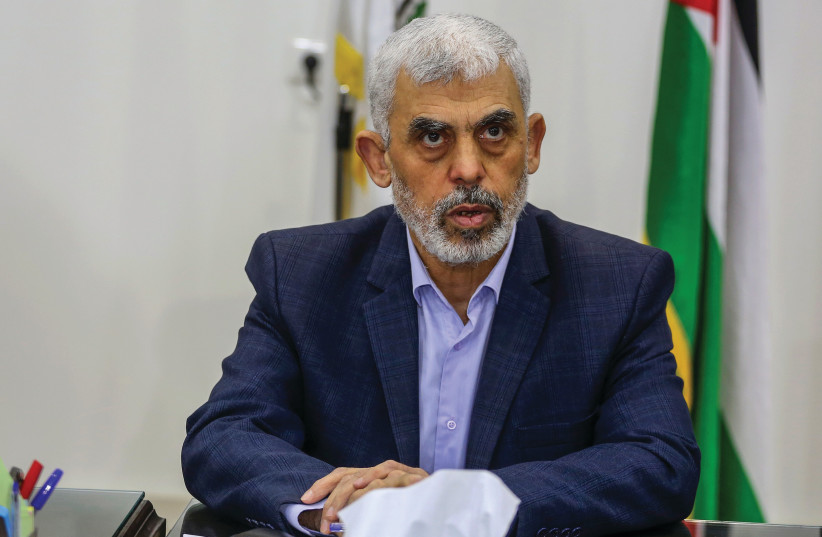For too long, Israel has operated under the misguided notion that Hamas, a terrorist organization, would eventually abandon its dogmatic hatred, and choose economic prosperity over war.
This profound misconception has plagued Israel’s security approach, leading to continuous missteps in handling the conflict, and exposing the lack of strategic thinking on Israel’s side.
Unfortunately, this misconception has not changed much. As Israel runs its limited operation in Rafah and contemplates a potential deal with Hamas, we witness yet another instance of Hamas exploiting cultural differences, leveraging public opinion, and international pressure to manipulate Israel into ending the war prematurely, without achieving its goals.
Hostage deal negations reach a dead-end
The recent negotiations on a hostage deal reached a dead end after the parties could not agree on the terms.
That did not stop Hamas from cynically accepting a completely different deal, gaining support from the international community, and shifting the pressure and blame for sabotaging the negotiations on Israel.

It also increased the criticism against the government at home, with protesters demanding the resignation of the Israeli government and to accept a deal at all costs.
Thus, as Israel determined to continue the military efforts and negotiate a better deal, it finds itself entrapped in a zero-sum game between securing the release of hostages and pursuing military objectives.
To break free from this self-imposed limiting paradigm, Israel needs to change its approach and restore its power projection.
In the Middle East, friends and foes appreciate power and decisiveness, not hesitance and containment. Moreover, the international community tends to accept facts on the ground over time, even if they contradict its views.
In this context, Israel can learn from other conflicts and past experiences.
First, the Russian invasion of Ukraine demonstrates the impatience of Western countries for long wars. Since 2014, The US and EU have been pushing hard to protect the territorial integrity and sovereignty of Ukraine following the annexation of Crimea and Donbas.
Nowadays, exhausted by the long war and the growing fear that Russia is gaining momentum on the battlefield, they are more receptive to the idea of reaching a ceasefire without the return of annexed territories.
For Israel, it exemplifies how an entity that is perceived as weak, without significant achievements on the battlefield is the one to be pressured to compromise, even if it is fighting a just war.
Another example is the recent Azerbaijan-Armenia war.
Azerbaijan and Armenia had a territorial and ethnic conflict since the collapse of the Soviet Union concentrated mainly around the Nagorno-Karabakh (Artsakh) region.
DURING THE war, Azerbaijan used simultaneously military power and diplomatic efforts to achieve its goals.
In September 2020, Azerbaijan launched a massive offensive to regain most of Nagorno-Karabakh. It agreed to a ceasefire but has not withdrawn its troops and was preparing for additional military operations.
Later they launched a blockade on the region, seizing the Lachin corridor that connects it to Armenia.
While negotiating with the international community on an agreement to reopen the corridor and end hostilities, Azerbaijan initiated another offensive, gaining full control of Nagorno-Karabakh.
The international community criticized Azerbaijan – the UN condemned Azerbaijan, the ICJ opened an examination against Azerbaijan, and humanitarian groups expressed their concern over humanitarian issues and a possible genocide.
Nonetheless, the reality on the ground set the tone, and Armenia was ready to discuss a permanent peace treaty, backed by the international community which pressured Armenia to compromise.
This example shows that diplomacy and military can be complementary rather than conflicting as in a “zero-sum” game. It also emphasizes the tendency of the international community to align with winners and accept terms that are the opposite of the ones they supported in the beginning.
There’s a similar and closer example that Israeli decision-makers might have forgotten.
When considering the Peel partition plan in 1937, the first prime minister, David Ben-Gurion, felt that although the plan was not ideal, the only way forward was to continue negotiating, as he wrote to his son: “a state on only part of the land isn’t the end, it’s only the beginning. The establishment of a state, even if it’s only a partial one, will serve as a powerful lever in our historic efforts to redeem the entire country.”
Ben-Gurion understood what today’s leaders ignore – you don’t wait for the ideal terms, you keep moving forward, militarily, and diplomatically.
Thus, Israel must shed its limiting conceptions, not be deterred by external pressures, or play by rules the other side doesn’t honor.
It should keep negotiations while fighting in Gaza, and even accept a bad deal with Hamas – if such a deal exists – to get our hostages home. Then, as Ben-Gurion put it, it won’t be the end but rather might be the beginning of Israel’s win in this war.
Fleur Hassan Nahoum is the cofounder of the UAE Israel Business Council and Gulf Israel Women’s Forum, a senior fellow at the Misgav Institute for National Security and former deputy mayor of Jerusalem. Joseph Rozen is a leading expert on geopolitics and national security who served in the Israeli National Security Council for a decade. He is also a senior fellow at the Misgav Institute.
